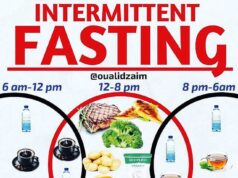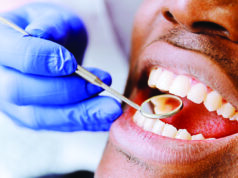By Beatrice Nakibuuka
The festive season is here again. World over, most people celebrate the festivities with so much food and drinks.
However, it is important to note that when the food is poorly handled, it can cause food poisoning.
During the 2022 festive season, a Kenyan Royal Media Services (RMS) staff died, and many others were hospitalized over food poisoning.
The incident happened after the media house staff consumed food from a buffet prepared by a hired catering firm during the Christmas festivities.
“On Boxing Day December 26, 2022, some of the staff complained of severe stomach pains after consuming meals served within the premises of the company,” said Wachira Waruru, the managing director, RMS Group.
Waruru added: “We are deeply shocked and saddened to inform the public that one staff member has, unfortunately, succumbed to the illness attributed to suspected food poisoning.
“Our thoughts and prayers are with the family of our deceased staff member during this difficult time.”

What is food poisoning?
According to Dr Franklin Wasswa, a general physician at Entebbe Grade B Hospital, food poisoning is an illness caused by eating food or beverages contaminated with bacteria such as salmonella, Bacillus cereus, Clostridium botulinum, Vibrio, Listeria, and Escherichia coli (E. coli).
Food can become contaminated at any point from the farm or fishery, to the time of serving the food at the table. Such contamination largely comes as a result of improper handling.
Dr Wasswa says: “Poor handwashing while handling the food can cause food poisoning. Faecal matter that remains on the hands after using the toilet can contaminate food.
“Other contaminants can be transferred from hands during food preparation or food serving. Unwashed knives, cutting boards or other kitchen tools can spread contaminants.”
Improper storage of food can also contaminate it. If food is left out for too long at room temperature it, can become contaminated.
Food stored in the refrigerator for too long can also get spoilt. Also, food stored in a refrigerator or freezer that is too warm can develop bacteria.
Anyone can get food poisoning, but some categories of people are more likely to get sick or have more serious complications when exposed to food poisoning. These may include children, pregnant women, the elderly and people with weakened immune systems due to another disease or treatments such as those living with HIV/AIDS or cancer.

Research
Research by Dr Lucas Ampaire, a lecturer at Mbarara University of Science and Technology, revealed that most commercially vended drinks in Kampala are contaminated with several types of bacteria.
“I conducted the study because drinks are one of the commonly consumed beverages in Kampala, and there are increased episodes of foodborne diseases.
“I asked, observed and picked samples of the drinks and took to the laboratory where they were tested,” Dr Ampaire says.
The juices included pineapple juice, passion fruit juice, water packaged in kavera and bushera. From the 900 samples of different types of juices made by different handlers, about 30 per cent of the juices have a type of bacteria that are resistant to treatment by the common drugs used to manage infections caused by those bacteria.
He says: “Some of these bacteria include Escherichia coli (E. coli) which we pick from the faecal matter of human origin; Klebsiella pneumonia which can be found in a variety of environments such as soil, water, and vegetation; and Pseudomonas aeruginosa which lives in the environment and can be spread to people when they are exposed to water or soil that is contaminated with these germs.”
Although the study was conducted in Kisenyi parish as the study area, it can represent all the foods and beverages that are vended and sold around Kampala.
Causes
– Raw or undercooked poultry, unpasteurized milk, and contaminated water.
– Foods, sauces, soups, meats and others that are left over at room temperature for too long.
– For infants, honey or pacifiers dipped in honey. Home-preserved foods including canned foods, fermented beans and alcohol.

– Meats, poultry, stews and gravies. Commonly, food that is not kept hot enough when served to a large group. Food left out at room temperature for too long.
– Raw or undercooked meat, unpasteurized juice, soft cheeses from unpasteurized milk, and fresh fruits and vegetables.
– Food and water contaminated with human faeces that carry E. coli bacteria and other parasites.
– Raw and undercooked fruits and vegetables, and other uncooked food.
– Food handlers who have hepatitis A.
– Ready-to-eat foods, such as salads and sandwiches, touched by food handlers with the virus.
– Food or water contaminated with vomit or faeces of a person with the virus.
Signs and symptoms
Depending on the cause of the food poisoning; bacteria, virus or even any kind of chemical.
Generally, it can include headache, fever, vomiting and nausea, abdominal cramps, diarrhea, upset stomach, bloody stools.
In some severe incidents, food poisoning can affect the nervous system leading to blurred or double vision, loss of movement in limbs, weakness.
Although in some cases food poisoning can be mild, it is important that you seek medical attention even when it seems mild.

Dr Wasswa recommends that you go to the hospital if the diarrhoea is beyond what is considered comfortable to daily life, then a professional visit can recommend medications that will stop diarrhea.
“If someone fails to eat or keep fluids or food down because of vomiting, then such a person needs to be rehydrated through the veins because dehydration can kill both children and adults,” he says.
Whether it is a child or adult, no one should risk managing food poisoning from home because it can be fatal in just a matter of hours.
When you have diarrhoea and vomiting, you not only lose water but also important electrolytes or salts the body needs to function well.
These need to be replaced as soon as possible. For children, this imbalance is more lethal than if it was an adult.
Dr Wasswa also warns: “If a child has diarrhea followed by general body swelling, mostly the face, or their urine is having unusual color and amount that is little, then one has to seek professional help to rule out any effect on the kidney.”
Treatment
He advises that fluid replacement is very important for people with food poisoning because it helps prevent dehydration.
After vomiting and diarrhoea, the body loses a lot of water that must be replaced or else dehydration can complicate the situation.
Fluids and electrolytes (such as sodium, potassium and calcium) help to maintain the balance of fluids in the body.
If the situation is not severe, the electrolytes can be replaced using oral rehydration salts (ORS) that are made at home by mixing clean boiled drinking water of 1 litre, six level teaspoons of sugar and a half level teaspoon of table salt.
Stir the mixture till the sugar dissolves. For complicated cases, the electrolytes can be replaced intravenously in the hospital.
If the food poisoning was caused by bacteria, you may be prescribed antibiotics.
Drugs that target parasites, called anti-parasitic, are usually prescribed for parasitic food poisoning.
Complications
The most common complication of food poisoning is dehydration caused by diarrhoea and vomiting.
Severe dehydration can cause organ damage. Food poisoning can even be fatal if not treated.
People with a weakened immune system and the elderly can develop meningitis, sepsis, blood clots in the kidneys, and bacteria in the bloodstream from food poisoning.
Listeria bacteria during pregnancy can result in: miscarriage or stillbirth, sepsis and meningitis in newborn babies.
Prevention
Clean preparation or handling of food is essential, serving or eating food hot is also another option.
Handling food with clean washed hands can help prevent food poisoning.
On this note, Dr Wasswa says: “If you had a whole day of not washing hands, at the end for you to have those hands clean you will need to wash them for a long time with soap; about three minutes or the usual 30 seconds that usually people do but maybe three times of that.
“Otherwise, the hands will still have some layer of oils which will still hold the contaminants.”
If your hands get in contact with faecal matter you should wash your hands for the at least four minutes.
This is because the fecal matter gets in there and the common 30 minutes of washing does take that out.
That said, Dr Wasswa warns that “People who do not use toilet paper after a long call and use water bring their hands in direct contact with faecal matter.

“Such a person should wash their hands for four minutes with soap and wash the hand way above the wrist.”
He also advises that fruits and vegetables should be washed and thoroughly rinsed under running water before eating, peeling or preparing.
Wash kitchen utensils such as cutting boards, knives and other utensils with soapy water after contact with raw meats or unwashed fruits and vegetables. Also, do not eat raw or undercooked meat or fish.
Throw away leftovers if you are not sure that they are safe. Do not eat food with moulds and clean your refrigerator before keeping their food.





















